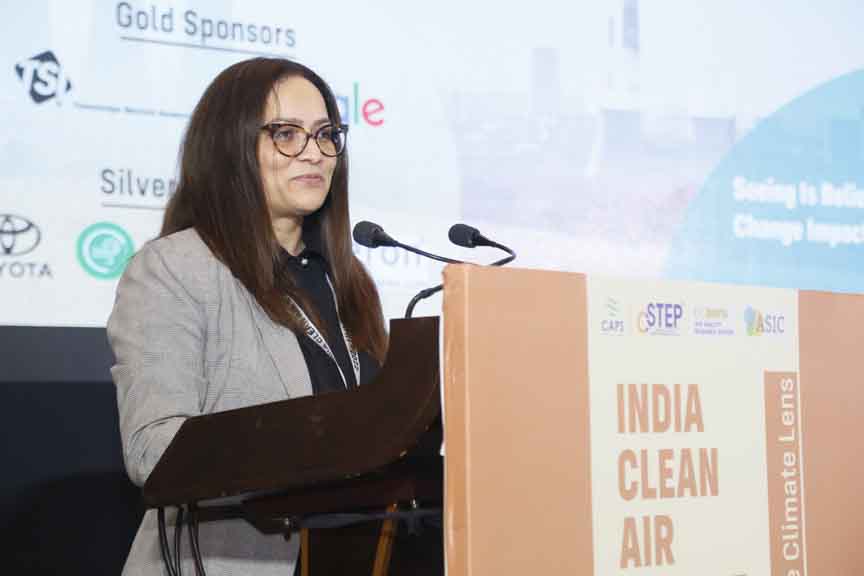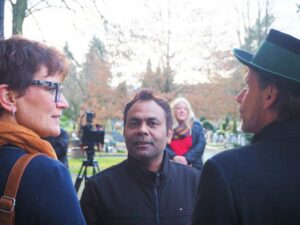ICAS 2022: Punjab’s Municipal Corporations need to be proactive and coordinate better to fight air pollution
3 min read
Chandigarh, 25 August, 2022: Numerous city municipal corporations in the state of Punjab are not only struggling to understand the requirements under the National Clean Air Programme (NCAP) but are also unable to coordinate between various departments within civic bodies to address the issue of air pollution, the Center for Study of Science, Technology and Policy (CSTEP) – a policy-research think tank – has assessed.
The analysis further states that municipal corporations, especially across Amritsar, Ludhiana, Hoshiarpur and Bhatinda, have asked CSTEP assistance in developing their understanding of the dynamics of air pollution as well as the requirements and strategies under NCAP. The NCAP, announced by the Ministry of Environment, Forest and Climate Change (MoEFCC) in January 2019, has led to the development of clean air action plans with an aim to reduce PM2.5 pollution by 20–30% by 2024 compared to 2017.
The findings were shared on the sidelines of the India Clean Air Summit 2022 (ICAS 2022) on Thursday at Bengaluru. ICAS is India’s premier event on air pollution and is organised by the Centre for Air Pollution Studies (CAPS) at the CSTEP to call for an integrated approach to resolving air pollution and climate change, highlighting the commonalities and identifying key benefits from framing policies that look at the two challenges jointly. The four-day event brought together scientists, policymakers, technologists, and affected communities to discuss solutions for air pollution.
Among the findings for Punjab, the NCAP initiated a tripartite agreement between state pollution control board, municipal corporation and an institute of repute. “Various city municipal bodies are struggling to understand the requirements of NCAP and coordinating among line departments. The municipal corporations have requested help in terms of building capacity about dynamics of air pollution and understanding the requirements, reagents and strategies under NCAP,” said Dr Pratima Singh, Head of CAPS.
Stating that CSTEP aims to provide Punjab with effective long-term management strategies for these polluting sectors she added that working in silos was not the solution for these civic bodies. “We all need to work in collaboration. Municipalities need to actively make use of the institute of repute identified by the Central Pollution Control Board under NCAP to help them build their capacity. Also, all the other institutions and think tanks working in these cities need to come together and support these civic bodies to understand the challenges associated with air pollution,” said Dr Singh suggesting that to achieve a comprehensive improvement in the state’s air quality, industrial and transportation emissions should also be kept in check.
Meanwhile, commenting on the stubble burning issue in Punjab, which is expected to begin in a couple of months, Dr Singh said that in order to effectively implement strategies, there must be better inter- and intra-district departmental cooperation and collaboration.
“Another critical element is empowering farmers by increasing their ability to handle agricultural leftovers. To a large extent, stubble burning can be decreased by raising public awareness of new technologies, governmental incentives, and the detrimental effects of air pollution on human health,” she said.
Meanwhile, this year, in its 4th edition, ICAS brought together environmental activists, policymakers, industrialists, and students for a range of discussions that look at linkages between Air Pollution and Climate Change and how exploring these dual issues together can reveal important insights for policies.
“Air pollution and climate change are both matters of grave concern. As an organisation examining solutions using science and technology, we have taken up the challenge to look at these two ‘wicked’ problems together. We aim to explore how solutions, both technical and policy, can be integrated to make them more effective with sustainable outcomes,” says Dr Jai Asundi, Executive Director, CSTEP.
Through ICAS, CSTEP is enabling a platform to build and nurture an ecosystem that includes members of different communities – academia, civil society, industry, and government – to better inform research, help develop better solutions, and implement them effectively in a collaborative manner, he added.
Speakers examined how India’s energy transition to renewable energy would impact the dual crises of air pollution and climate change. Participants also discussed measures to improve the implementation of the National Clean Air Programme (India’s strategy for combating pollution in non-attainment cities), the need for data democratisation, and building partnerships with different communities to implement solutions on the ground.




